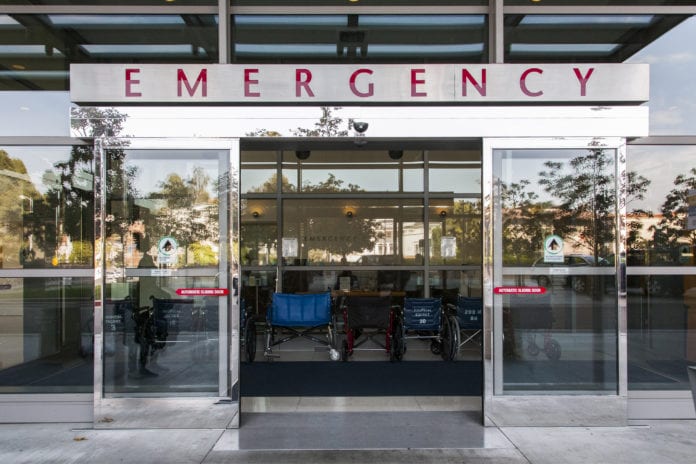According to a poll conducted in part by the American College of Emergency Physicians, nearly a third of American adults (29 percent) say that they have delayed or avoided medical care because they are concerned about contracting COVID-19. Waiting to see a doctor in a medical emergency could be life-threatening, and while it’s important to follow social distancing guidelines, it’s critical to know when to go to the emergency department.
Heart attacks and strokes still happen, even during a global pandemic. Health officials around the country are reporting a decline in individuals seeking care in emergency rooms (ER) despite the fact that heart attack and stroke rates are not declining.
A heart attack or stroke can happen at any time. And no matter when it occurs, calling 9-1-1 and going to the ER is still the best place to get lifesaving treatment.
Safe, Proven Treatment Available in Emergency Rooms
Emergency rooms are specially equipped with medication, professionals, diagnostic tests and therapies to treat serious conditions like heart attack and stroke quickly and reliably.
The clot-busting drug tPA has been proven to reduce the risk of disability from a stroke. However, individuals must receive this therapy within four and a half hours of experiencing symptoms.
Time is just as critical during a heart attack. The more quickly a blocked artery is reopened, the better chance individuals have for survival and reduced risk for heart damage.
Hospitals are prepared to deliver these therapies and procedures.
Despite this access to lifesaving care, many people may be hesitant to turn to the ER right now. Stories about overwhelmed hospitals dominate national news. And some individuals may be concerned about their risk of becoming exposed to the novel coronavirus, COVID-19.
Emergency medical providers are specially trained to handle both types of patients: Those in need of immediate care for serious conditions like heart attack and stroke; and suspected cases of COVID-19.
Signs of Heart Attack and Stroke
The first step in getting the care you or a loved one needs is knowing the signs and symptoms of a heart attack or stroke.
Heart Attack Signs
The most common signs of a heart attack include:
- Chest pain or discomfort – Pain or discomfort is felt around the center or left side of the chest. It can last longer than a few minutes or may go away and come back. Some individuals experience it as pressure, pain, fullness or squeezing.
- Shortness of breath – This can occur during rest or light physical activity, like walking up the stairs.
- Discomfort in the upper body – A heart attack can include pain in the arms, back, neck, jaw or upper stomach.
Other symptoms of a heart attack include:
- Cold sweat
- Light-headedness or dizziness
- Nausea
- Sleep problems
- Fatigue
- Lack of energy
Stroke Signs
Remember “FAST” to identify the signs of a stroke:
- Face Drooping – One side of the face droops or feels numb. Individuals experiencing a stroke may have a lopsided smile.
- Arm Weakness – One arm may feel weak or numb. When lifting both arms, one may drift down.
- Speech – Speech may become slurred and difficult to understand.
- Time – Call 9-1-1 if any signs or symptoms of a stroke are present.
Other symptoms of a stroke may also include:
- Sudden numbness on one side of the body
- Sudden confusion, including difficulty speaking or understanding what is said
- Sudden trouble seeing in one or both eyes
- Sudden trouble walking
- Sudden severe headache
What to do for Heart Attack or Stroke During COVID-19 Outbreak
When it comes to heart attack and stroke, it’s always better to be safe than sorry. Call 9-1-1 immediately if you think you or a loved one are experiencing a stroke or heart attack. Do not drive yourself or have someone else drive you to a hospital. Emergency medical technicians (EMTs) can begin delivering lifesaving treatment before you even leave your home.
The local emergency room is ready, able and well-equipped to treat heart attacks, strokes and other medical emergencies. Don’t delay seeking the care you or your loved ones need.
For more information about stroke, visit emoryhealthcare.org/stroke.
For more information about heart attack, visit emoryhealthcare.org/heart.



